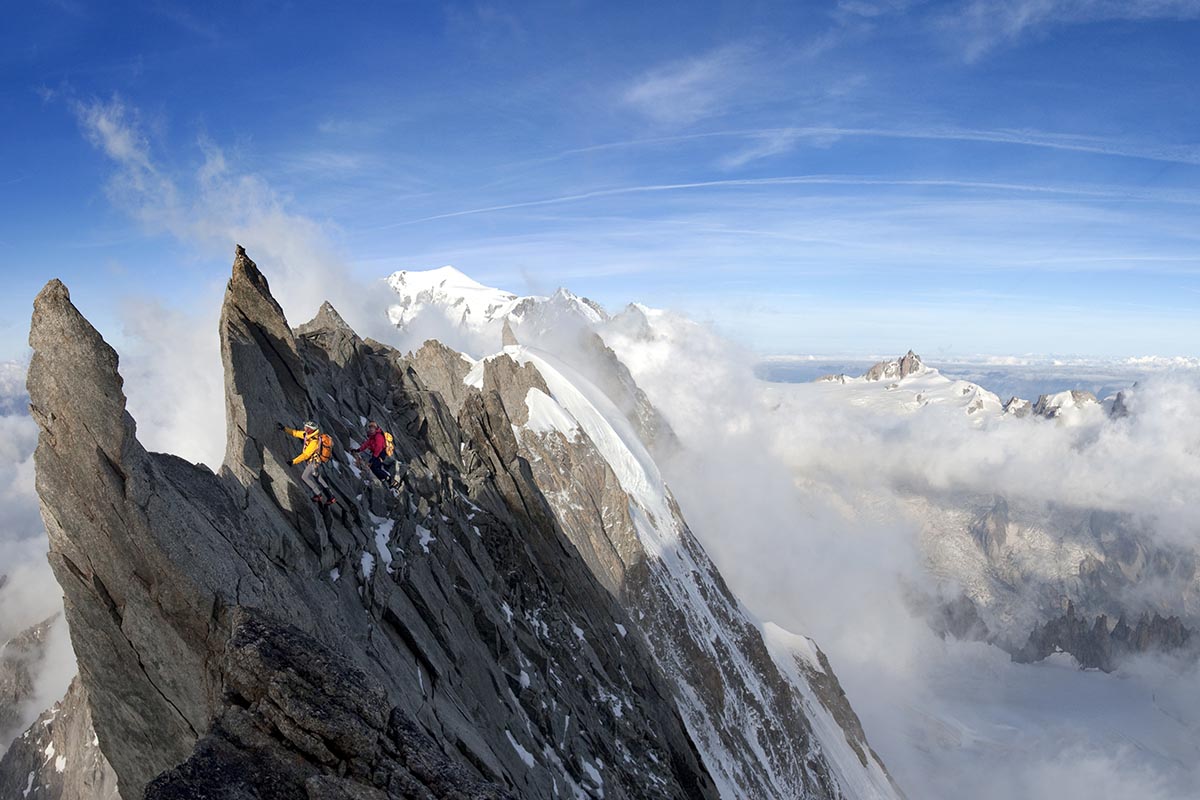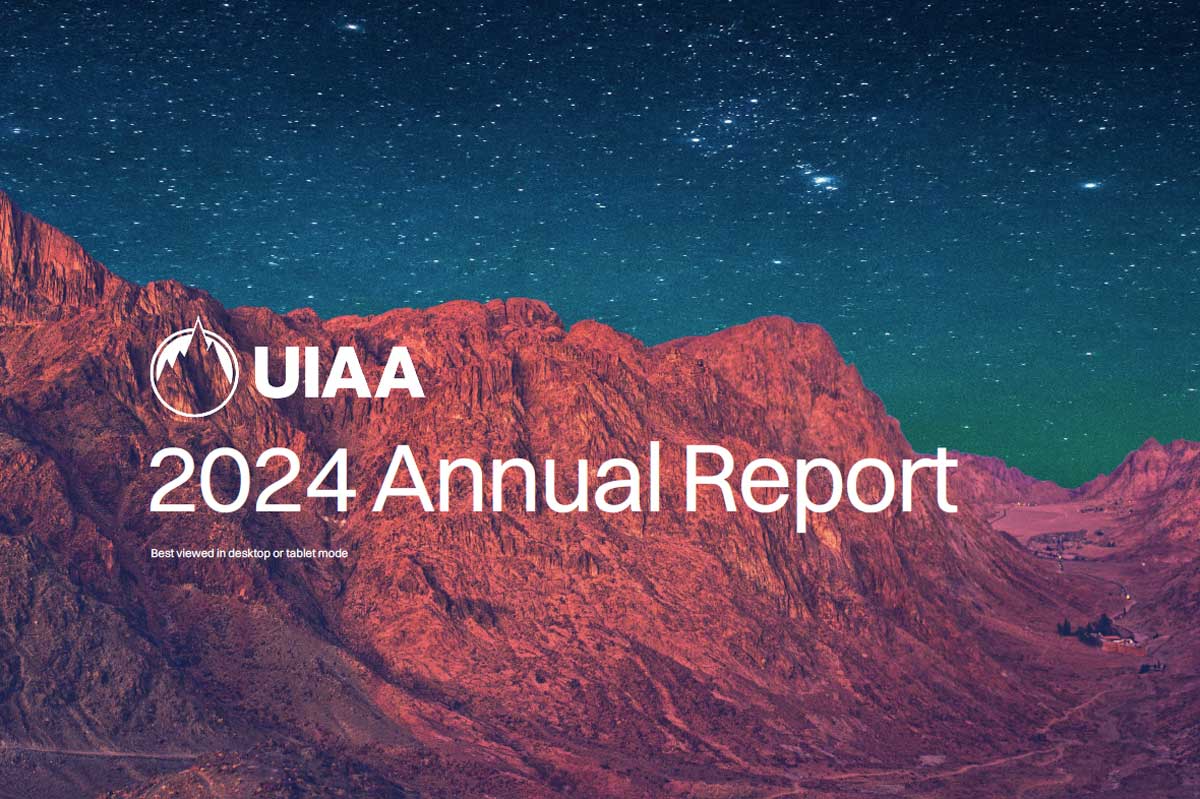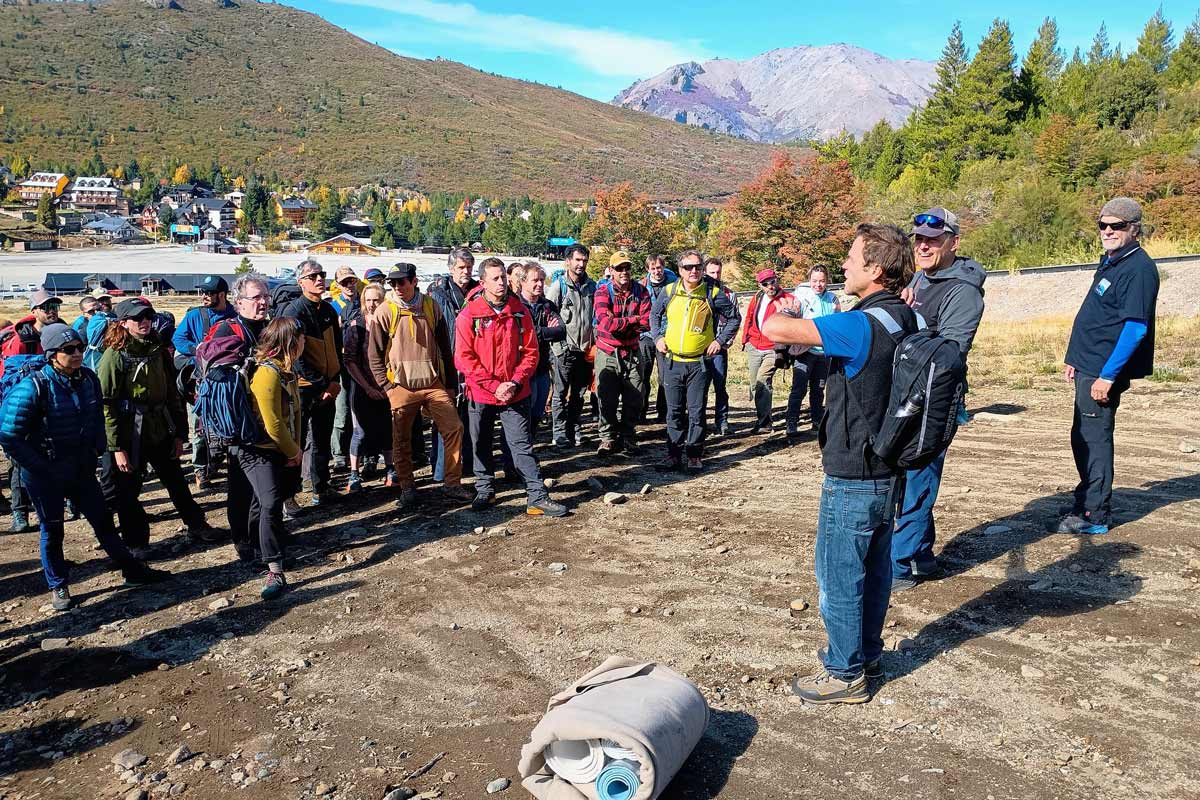The International Climbing and Mountaineering Federation (UIAA) Covid-19 Crisis Consultation (CCC) Taskforce held its fourth online meeting on 6 August. In addition to the meeting minutes below, the UIAA also published the following statement related to Covid-19.
During the meeting the following topics were discussed:
UIAA Covid-19 Communication
As the pandemic evolves, the UIAA is focusing more on providing guidance related to general topics (travel, global climbing restrictions and trends, huts) rather than updates about the specific status of individual countries and members. However, members are encouraged to continue supplying information on Covid-19 in their respective countries. The dedicated online form can be found here. Information will be used to support the aforementioned topics. The UIAA Covid-19 portal remains the ‘go-to’ resource for all the latest information.
Country Updates
As is tradition, attendees provided updates regarding their respective countries and areas of interest:
Belgium
Some popular areas for Belgian tourists, such as the Geneva, Valais and Vaud areas in Switzerland were temporarily declared ‘red zones’. This ban has subsequently been rescinded: Belgians are free to travel again to the Vaud and Valais cantons. The broader picture is unsettling. Belgium seems to be in a second wave. More young, active people are being hit by infection – there is a big danger they will spread the virus to older generations. Testing and tracing is not working well.
Germany and Austria
Restrictions in place for huts in Austria are not strict enough. The general consensus is that people are too relaxed about restrictions. Authorities have verified the track and tracing and to date they have all come back negative, including for hut staff.
In Bavarian huts, regular checking and stronger restrictions are in place. Capacity remains limited to about 30%. During peak holiday season, more people are visiting mountain areas causing overcrowding in valleys and villages.
In Germany in general, infections are on the rise again. The economy is struggling with significant job losses. How things will develop in the coming months is the big question. The German Alpine Club (DAV)’s Summit Club has resumed activities to destinations that can be reached by car, and not those by long-distance flights.
India
The situation is not good. 50,000 new infections a day are currently being reported, over 1.8 million infections in total. The testing rate is going up. From the point of view of the Indian Mountaineering Foundation (IMF), the main concern is climbing in the Himalayan regions. Amongst Himalayan states, Kashmir has the highest number of infections which is very concerning. Compulsory quarantine for 14 days is mandatory in some areas. Medical facilities are challenged, so restrictions are needed. Compared to the country as a whole, in the Himalayan region, the spread of the virus is not as significant as in more densely populated areas.
No possibility of climbing in Himalayan region foreseen until spring 2021 – even then expect severe restrictions. In Mumbai, a city of over 12 million people, large scale testing has taken place in the area of Dharavi. An estimated 50% of population there had developed antibodies. However, the nature of virus is still not known. Earlier concepts such as herd immunity may not apply.
Nepal
The reopening of climbing and mountaineering in the Himalayas was announced by the government with a focus on tourism/economy, against the background of rising infection numbers. No rules are currently in place. International flights resume on 17 August, things are a state of flux. Travel related guidelines still pending from authorities. UIAA guidance on visiting Himalayas can be found in the statement released after the meeting. The general message is of caution and patience and avoid cross continental travel.
Switzerland
Huts in Switzerland are being challenged by the volume of people wanting access. Safety concepts are in place but not all guests are following them. The situation needs to be rectified. There is a gradual increase of positive cases per day in Switzerland. The Swiss Alpine Club’s training courses are ongoing and mountain guides working.
UK
Some restrictions (and quarantine measures) on entry of citizens from certain countries. Some localized lockdown measures now being enforced. Climbing and visiting outdoor regions is possible in all parts of England, Scotland and Wales. Focus on individual responsibility. Some measures have been deemed to slow in being implemented.
UIAA Operational Updates
No Plan B has yet been put in place for UIAA competitions in 2020-2021. Given the current situation, the UIAA Ice Climbing World Tour is likely to face challenges. Transcontinental travel may not be possible and international events with many nations sending athletes may not be possible. More continental/regional events and ice climbing in nature may be considered as alternative options to a global World Tour.
The next UIAA CCC Taskforce meeting is scheduled for the second half of September.
The CCC Taskforce is made up of the following members:
Frits Vrijlandt, UIAA President
Lode Beckers, UIAA General Secretary
Mahmoud Hashemi, UIAA Executive Board
Peter Muir, UIAA Treasurer
Françoise Jaquet, SAC President, UIAA Management Committee
Josef Klenner, DAV President, UIAA Management Committee
Amit Chowdhury, UIAA Safety Commission President, UIAA Management Committee
Urs Hefti, UIAA Medical Commission President
Buddha Basnyat, UIAA Medical Commission
Christine Pae, UIAA Management Committee
Nils Glatthard, UIAA Director of Operations
Peter Bourne, UIAA Communication Manager
Carol Kahoun, UIAA Project Manager
The UIAA – International Climbing & Mountaineering Federation – has published a number of resources related to Covid-19.
The dedicated UIAA website portal can be found here.
Reports from the meetings of the UIAA Covid-19 Crisis Consultation (CCC) task force.
16 April – creation of CCC
28 April – first meeting of CCC
14 May – second meeting of CCC
18 June – third meeting of CCC
11 August – statement



